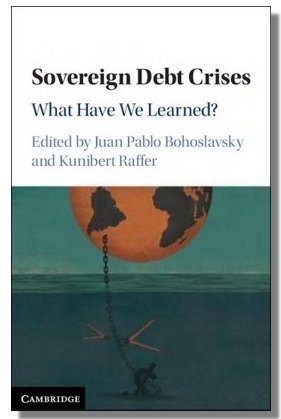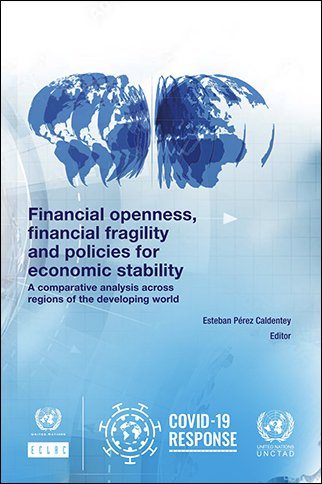Publisher: Third World Network Year: 2023 No. of pages: 42 Download now About the Book…
Sovereign Debt Crises : What Have We Learned? Edited by : Juan Pablo Bohoslavsky and Kunibert Raffer

Publishers: Cambridge University Press
ISBN: 9781316510445.
ISBN – 10: 1316510441
About the Book
There is an obvious need to learn more about why some countries succeed and others fail when dealing with debt crises. Why do some sovereign debtors overcome economic problems very quickly and at minor human rights costs for their people, while others remain trapped by debts for years struggling with overwhelming debt burdens and
exacerbating economic problems and human suffering?
This book analyzes fourteen unique or singular country cases of sovereign debt problems that differ characteristically from the ‘ordinary’ debtor countries, and have not yet received enough or proper attention – some regarded as successful, some as unsuccessful in dealing with debt crises. The aim is to contribute to a better understanding of the policy options available to countries struggling with debt problems, or how to resolve a debt overhang while protecting human rights, the Rule of Law and the debtor’s economic recovery.
Table of Contents
- Introduction: we need to learn from our experience
Juan Pablo Bohoslavsky and Kunibert Raffer - Managing public debt crisis in Argentina: between sovereignty and subordination
Alfredo Calcagno - Why developing countries should not incur foreign debt: the Brazilian experience
Luiz Carlos Bresser-Pereira and Thiago de Moraes Moreira - Ecuador’s 2008-09 Debt Restructing: a special case?
Adam Feibelman - Greece: an EU-inflicted catastrophe
Kunibert Raffer - Grenada: a small island developing state needs new ways out of its debt
Juergen Kaiser - Iceland: a human rights sensitive approach to deal with financial crises
Juan Pablo Bohoslavsky - Indonesia’s 1997-98 economic crisis: a teachable case wasted
Manuel F. Montes - The Irish sovereign debt crisis Post-2009: a lesson on why countries should never enter into unsustainable currency unions
Philip Pilkington - Short-term capital controls and Malaysia’s fast recovery after the East-Asian crisis
Marion Pircher - Sovereign debt: lessons from the Mexican experience
Oscar Ugarteche Galarza and Rodrigo Delgado Mendez - Portugal’s austerity bailout: lessons of a dangerous experiment
Jose Castro Caldas - Don’t waste a serious crisis: lessons from South Africa’s debt crisis
Daniel D. Bradlow - Lessons from South Korea: a developmental mindset makes a difference when governing the financial economy
Elizabeth Thurbon - The Spanish crisis: the trouble of managing debt overhang in an imperfect monetary union
Jose Antonio Alonso - Conclusions: what has been learned?
Juan Pablo Bohoslavsky and Kunibert Raffer
About the Author
Juan Pablo Bohoslavsky is a United Nations Independent Expert on Foreign Debt and Human Rights. He previously worked at the United Nations Conference on Trade and Development (UNCTAD) and as a consultant for the United Nations Economic Commission for Latin America and the Caribbean (ECLAC). A doctor of law with wide experience in international relations and litigation, he is the author of numerous books and articles on sovereign financing, economic complicity, and human rights.
Kunibert Raffer is associate professor at the department of economics of the University of Vienna and senior associate of the New Economics Foundation. He was a consultant to the UN Industrial Development Organization, the UNDP, the G-24, visiting fellow at the Institute of Development Studies, Sussex, and honorary research fellow of the department of commerce, University of Birmingham. His present work focuses on debts and trade, especially reform of debtor-creditor relations. He proposed internationalizing the U.S. rules for municipal insolvency to resolve the sovereign debt overhang.



